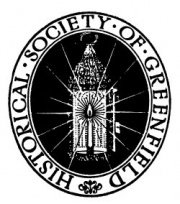MY TURN
Sharing William Apess’ incredible story
By DREW LOPENZINA
Igreatly appreciated Ella Adams’ story in the Recorder covering the William Apess Day event held in Colrain last Friday. It was gratifying to see such thoughtful reporting on this event, and I would like to extend gratitude, as well, to all the community members who showed up (roughly 75 by my count) on the lawn of the Griswold Memorial Library to help us celebrate this little-known 19th century Indigenous author.
William Apess’ incredible story has gone untold over the years, largely because of our failure in the U.S. to recognize Native peoples as important contributors to our collective historical narrative. In October 2018, while working on a biography of Apess, I collaborated with people in the town of Colrain, the place of his birth, to have an historical marker placed there in his honor. My hope was that Colrain and the surrounding region would begin to pay greater mind, not only to the Indigenous past of this region, but to those Native peoples who are still here today, often fighting the same battles that Apess fought in his day.
To Colrain’s credit, they embraced this project and agreed for the marker to be placed in the town’s center, on the lawn of the Griswold Memorial Library. A celebration was held on that day, which also drew a sizable crowd for such a small town, and tribute was paid by a number of speakers, including local Abenaki historian Lisa Brooks, recent winner of the prestigious Bancroft Prize in History for her book “Beloved Kin,” and Abenaki anthropologist from the University of Pennsylvania, Margaret Bruchac, who read a dedicatory poem on Apess that she had written for the occasion. Both have published on Apess in the past and are considered important national scholars in the field of Native American and Indigenous Studies.
The fact that the Town of Colrain went one step further this year and decided to declare May 21st William Apess Day, making of it an annual event, went well beyond any expectation I might have had when I first came to this town many years ago to begin my research. I commend the town selectmen for the clear and intentional language they adopted in their proclamation, committing the town to examine its engagements with local Native peoples and to pursue a more careful and inclusive reading of their own past. The Library Board of Trustees also threw its complete support behind the project, just as it had back in 2018. This time around, however, we were favored by the presence of Chelsea Jordan-Makely, the newly appointed Director of the Griswold Memorial Library. It was the genuine interest she took in the marker on her library ’s front lawn that put all of these recent events in motion and brought about Friday’s unlikely gathering.
On this first official William Apess Day, we were lucky to once again have Dr. Bruchac on hand to read her poem, as well as Dr. Barry O’Connell who first thought to gather William Apess’s works in a collected volume in 1992 entitled “On Our Own Ground: The Collected Writings of William Apess, Pequot,” making these writings accessible to the world for the first time. Rhonda Anderson, Commissioner of Indian Affairs, for the region was also on hand, as she had been in 2018. Rhonda has been indispensable over the last few years in bringing Indigenous issues to the fore throughout this region. We were also blessed with the presence of a delegation from the Mashpee Tribe in Cape Cod. Apess was adopted into the Mashpee tribe in 1833 and helped to organize an effective civil disobedience campaign there that led to the restoration of Mashpee civil rights during a difficult time in their history. Tribal elder Mother Bear gave her blessing to the proceedings and Jim Peters, Executive Director of the Commission for Indian Affairs in the Northeast, also addressed the crowd.
This was a beautiful event and my hope, moving forward, is that as an annual event it will mark a more generative and impactful engagement with Indigenous issues in the region, launching interest and educational opportunities. I welcome anyone who cares to know more about William Apess to come to the Greenfield Historical Society on July 13, at 7 p.m. where I will be giving a talk, “William Apess: Reclaiming a Native Son,” that will offer more information about this remarkable Native life.
Drew Lopenzina is an Assoc. Professor of English Literature and Director of MA English Program at Old Dominion University in Norfolk, Virginia. He is the author of “The Routledge Introduction to Native American Literature” h t t p s : / /bit.ly/3 y Ko z 9 A and “Through an Indian’s Looking-Glass: A Cultural Biography of William Apess” https://bit.ly/2TilvRX.
Dr. Drew Lopenzina reads William Apess’ words and speaks about the concepts of hospitality and settler colonialism as they relate to Indigenous American history during an event for William Apess Day held May 21 at the Griswold Memorial Library in Colrain. Lopenzina is the author of Apess’ biography and a professor of English at Old Dominion University.
Bio FOR THE RECORDER/ELLA ADAMS




